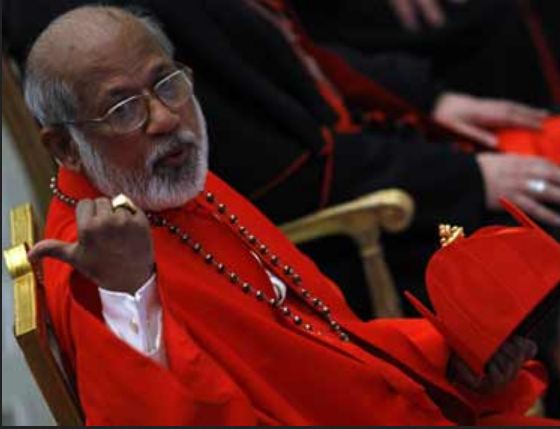Cardinal George Alencherry, Major Archbishop of the Syro-Malabar Church, who has been in the news for his murky land deals of the Ernakulam-Angamaly archdiocese, stated on Friday that the state and the country’s legal system should not interfere with the law of the church. Therefore, he audaciously equated the state’s law emanating out of a legitimate source, i.e. the Constitution of India with the Canon laws (which is in the form of the law laid down by the divinity having no binding significance anywhere in the world in today’s time). Cardinal George Alencherry was speaking after the Good Friday Mass at the Kokkamangalam St. Thomas Church in Alappuzha. He further stated that while every citizen was bound to obey the law of the land, greater importance must be given to the divine law. Therefore, he not only compared and equated the law of the church to the law of the land, but also elevated the law of the church to a higher pedestal.
Attempting to challenge the rule of law in the country, Cardinal George Alencherry further opined that divine justice has a status of its own, independent from domestic law, thereby suggesting that the church laws remain unaffected by the legal system of the country. He further cautioned that there are people in the church who do not give greater importance to the law of the church as compared to the law of the land, and try to control the church through court verdicts. This is not the only instance where the church has made an attempt to overwhelm the state.
In a recent petition challenging the constitutional validity of the Aadhaar Act before the Supreme Court, the petitioner John Abraham stated that the Aadhaar impinges on his religious beliefs as it was against the basic tenets of the Bible. According to him, the Aadhaar with its biometric ID, finger print and iris scan data, was similar to the warning issued in the book of revelation. It appears that the church is trying to stifle the authority of the state by the aid of its misplaced apprehensions.
Interestingly, Cardinal George Alencherry’s comments came at a time when the Supreme Court has recently observed that the charges against the cardinal along with two priests are of a very serious nature. The Supreme Court refused to stay the probe order by the Kerala High Court into the land deals.
The Kerala High Court, while ordering the probe, had observed that the ‘cardinal is not a king’ and nobody is above the law. As difficult as it may be to digest this, the Cardinal’s counsel actually argued that the Cardinal is ‘the supreme authority and a king can do no wrong’. The argument taken by Cardinal George Alencherry’s counsel demonstrates how the church is trying to belittle the significance of the legal system of the country and creating rules for itself.
The Cardinal and the church seem to be arm-twisting the country’s judiciary, which has made it clear that the Cardinal is not immune from the country’s legal system. This notion of the law of the church having a special status or being above the law has been demolished. But what we see is a more dangerous trend, of the church trying to claim illegitimate authority especially in the Christian-majority areas, in total defiance of the rule of law.
The church might try to dominate the everyday lives of the people just like it used to in the Middle Ages in Europe, to the extent of even punishing citizens if they violated the church’s law. In fact, the church’s law ran parallel to the state’s law, and the church’s law included punishments which were outside the realm of state’s law, such as punishments against witchcraft, sorcery, and heresy. However, such a state of affairs in today’s world is totally unacceptable.
The church must know and accept that it has no binding law of its own, at least in India. It is at the best an instrument of religion, and can never become an instrument of governance, no matter how hard it tries. In fact, the church like any other institution is bound by the Constitution and the ordinary law of the land. It cannot make its own law, but has to function in accordance with the country’s law.
